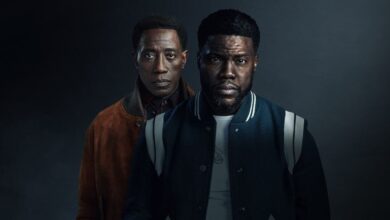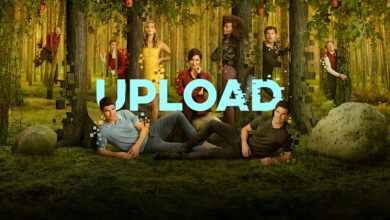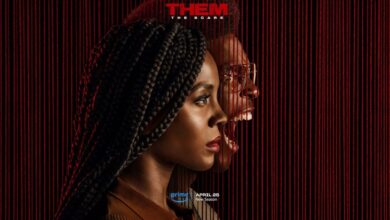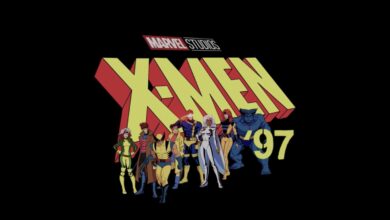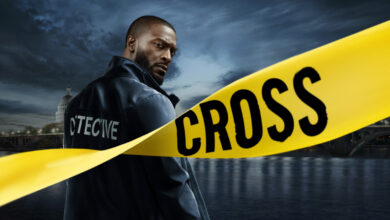Pistol Review: FX’s Series Journey Into The British Culture Of The Seventies Against The World
Cast: Toby Wallace, Anson Boon, Maisie Williams
Director: Danny Boyle
Streaming Platform: FX, Hulu and Disney+
Filmyhype.com Ratings: 3.5/5 (three and a half star)
Pistol Review, directed by Danny Boyle and created by Craig Pearce, is based on the biographical novel by Steve Jones and Ben Thompson. The new Hulu miniseries stars Dylan Llewellyn, Louis Partridge, Anson Boon, Maisie Williams, Sydney Chandler and Ferdia Walsh-Peelo, among others. Paradoxes of destiny, on the same day as the premiere of Pistol, the new Hulu miniseries that has its roots in the birth of the Sex Pistols, the British crown goes through the most dramatic event in its recent history. Talking about revolution and focusing exclusively on the birth of new world order, a new order of things reduces the complexity inherent in revolution as a process.
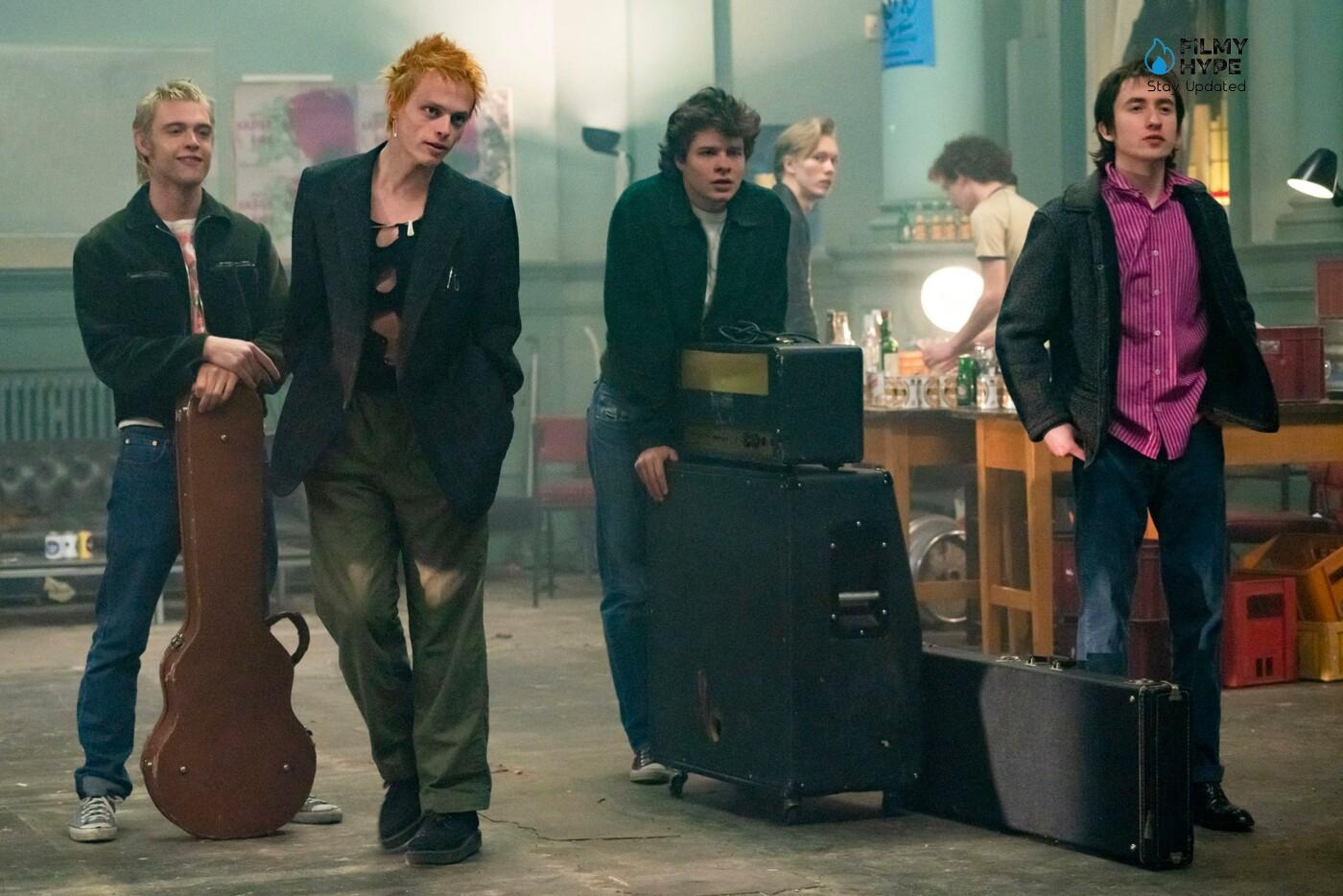
Because revolution is, first of all, destruction; and we explain this well in our review of Pistol, a miniseries by Danny Boyle and Craig Pierce on the birth and evolution of the Sex Pistols and the changes they brought with them in the mid-seventies. The new Hulu miniseries, one of the most anticipated releases of the month, traces its birth, its growth, its chaos and its destruction. And who better than Boyle himself to direct it? Along with Craig Pearce, its creator, and based on the memoirs of Steve Jones, guitarist of the group, we are facing a wild and essential jewel of biographical cinema.
Pistol Review: The Story
The title itself suggests what Pistol is about. In addition to telling the birth of the group, through clouded phases and decisions that are not always direct, Boyle also tells how the Sex Pistols led a conscious process of disintegration of rock’n’roll that opened a parallel path to the traditional one. Pistol leaves nothing out, also thanks to particular attention to the similarity of the cast with the original members of the group: from the lucky meeting of Steve Jones with Malcolm McLaren (Thomas Brodie-Sangster) and Vivienne Westwood (Talulah Riley) to the first disastrous concerts (interrupted, first by chance and then by choice), at the meeting with Johnny Rotten (Anson Boon) and Sid Vicious (Louis Partridge), to finish the consolidation of the band as we know it.
That of the Sex Pistols was an earthquake: on the one hand it shook the crust of the world music scene giving rise to a handful of punk groups, including American ones (as in the case of the Ramones and the Clash, born under different musical influences), justifying the existence of musicians who could not play and claimed the right to make music without knowing how to play; on the other hand, recalling the catastrophic brevity of an earthquake, or a gunshot, the birth and development of punk take place in just four years, even before the roots of a genre could be cemented lasting music and able to update itself as the world went on.
Pistol Review and Analysis
It is not easy to imagine, today, what the music scene of the time looked like. On the one hand, pop stands out with a profoundly different conformation compared to the one that defines the parameters of today’s pop music (just think that rock’n’ roll and soul songs still climbed the charts in almost the same way): net of sporadic cases, we are still far from the consolidation of pop as an autonomous genre and with clean outlines. But he dominates above all the British prog rock, the musical residue of the psychedelic ferment of the sixties and structured on the influences of jazz and classical music. Engaged in the assiduous search for harmonic complexity, and melodic and stylistic variety, it was progressive rock that attracted the attention of the proponents of punk rock.
In Pistol, Boyle and Pierce narrate this musical moment in their way, which is more like a cultural phenomenon than a true revolution capable of unhinging the existing sound to renew it from scratch. First, they do it through the perspective of a sex pistol, Steve “Cutie” Jones (Toby Wallace), who seemed destined to become the vocalist of the group, but he didn’t. He became, indeed, the guitarist, in a continuous exchange of roles that was crucial for the Sex Pistols and that reflects the tormented soul of his pieces (or “musicians”). Pierce’s writing, enhanced by a direction that winks at Trainspotting – especially for the hyperbolic overexposure of lights and colors – explores the protagonist’s family and psychological background without making a treatise on it; indeed, moving feverishly along the chronological line of events.
Gaining a large portion of space is the narration of the strategy that gave life to the undisciplined band, McLaren, focused on its purely aesthetic, political and cultural values. It demonstrates that the figure of Westwood, around whose King’s Road shop the boys gather, prevails over the actual artistic value of those, who wonder whether to start a piece in G, in D, or A. they want to tell a story through chord progressions, nor do they want music to be the ultimate goal. They are not born to make music, the Sex Pistols (for which art is nothing more than a means, like fashion), but to provoke an audience in which even the bourgeois respectable people who turn their gaze to their to pass, pretending that they are a waste and not a product of theirs; that they are strangers, and not their children, now annihilated by the effects of the destruction of every hippie ideal of freedom.
Danny Boyle has recovered all the affiliations that turned Trainspotting into a cinematographic piece to remember. That pulse with which he demystifies a miserable youth, and even forces us to hate it, but which paradoxically surrounds it with an intoxicating charisma. A stylistic arsenal that not only fits as one more piece in the narrative puzzle of the series but also raises it to a level of fidelity that will kidnap us without us being able to do anything about it. Because we will be British citizens in the 70s. Literally. In format, in lighting, in color, in the grain of his image and even in his dialogues. We will be one more part of the controversial society that saw the birth of a movement that made their hair stand on end at tea time.
The Sex Pistols marked a before and after. In music, in art and in the life of not only the British but of a world that, like a match that burns at full brightness an instant before being consumed, turned them into the purest expression of dissent in their vertiginous growth and more vertiginous fall. All his ideas, his anarchic reflections and his self-destructive imagination are present from the first minute of the series. With a fidelity that, although it sweetens certain points like the relationship between Steve Jones and Chrissie Hynde, he turns Pistol into honey for any music lover. The best Danny Boyle is back, His work in Pistol is not only as unique as the charisma of its protagonists, but he has managed to exquisitely bring together all the values that represented a generation in a visual and narrative style that blends with the spirit of the band, offering us a hypnotic result.
Pistol Review: The Last Words
Pistol is the perfect example of a musical cinematic biography: Danny Boyle turns his style with the camera into the perfect vehicle to showcase the chaos, discontent and passion that made the Sex Pistols rock legends and protagonists of the nascent scene punk. With Pistol, Danny Boyle creates a miniseries with a free and rebellious narrative, essential for those who want to understand how the birth of punk is linked to the political act of making oneself visible, rather than to a conscious idea of a musical revolution.



